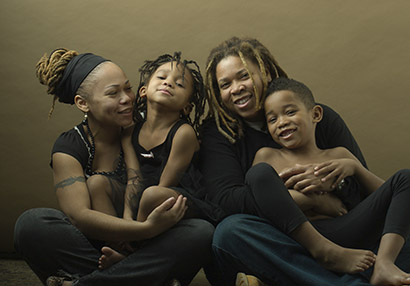Yet another study confirms that gay families are just like other families
 A new study has joined a raft of previous research that shows that children from same-sex families turn out the same as those from “traditional” families.
A new study has joined a raft of previous research that shows that children from same-sex families turn out the same as those from “traditional” families.
The report, which matched 95 same-sex and 95 different-sex parent families in the US, was authored by researchers affiliated with the Williams Institute at UCLA School of Law, the University of Amsterdam and Columbia University.
They found that households with same-sex parents show no differences from those with different-sex parents with regard to spouse or partner relationships, parent-child relationships, or children’s general health, emotional difficulties, coping and learning behaviour.
“This study is the first to use a nationally representative survey to compare the two types of households by focusing only on those with parents that have been in a continuous relationship,” said lead author Henny Bos, Ph.D.
The study, titled Same-sex and Different-sex Parent Households and Child Health Outcomes: Findings from the National Survey of Children’s Health, compared family relationships, parenting stress and child outcomes in households with female same-sex parents versus different-sex parents.
Although the study found no differences in family relationships and child outcomes, same-sex parents did report more parenting stress than heterosexual parents.
“Future investigations might explore whether the cultural spotlight on child outcomes in same-sex parent families is associated with increased parenting stress,” said psychiatrist and co-author Nanette Gartrell, MD, Visiting Scholar at the Williams Institute.
“Some of our earlier studies have shown that lesbian mothers feel pressured to justify the quality of their parenting because of their sexual orientation,” noted Gartrell.
Around 19 percent of the estimated 690,000 same-sex couples living in the US are believed to be raising children under the age 18.
The study was published in the peer-reviewed Journal of Developmental and Behavioral Pediatrics.
Leave a Reply